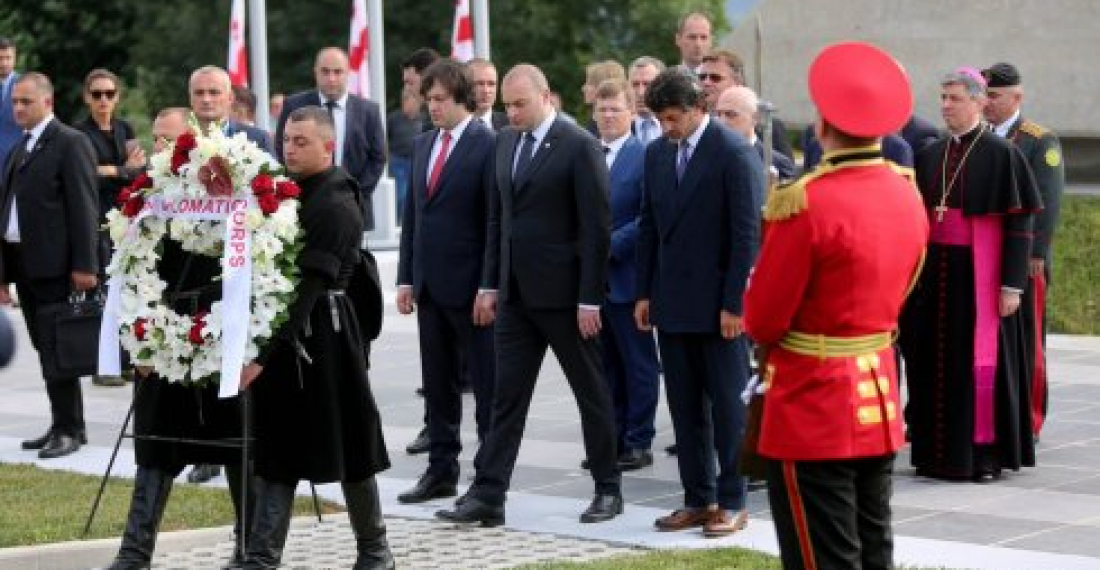Грузия отмечает 10-ю годовщину войны с Россией в августе 2008 года.
Премьер-министр Мамука Бахтадзе вместе с другими лидерами правительства отдали дань уважения павшим в войне.
Министры иностранных дел Латвии, Литвы и Польши, а также заместитель премьер-министра Украины в эти дни находятся в Тбилиси для участия в мероприятиях, совпадающих с годовщиной войны. Премьер-министр Бахтадзе поблагодарил за поддержку лидеров четырех европейских государства.
В 2008 году Россия вторглась в Грузию после столкновений между грузинскими и югоосетинскими силами. Впоследствии путем посредничества президента Франции Саркози было достигнуто прекращение войны. Россия признала Абхазию и Южную Осетию независимыми государствами и дислацировало многочисленное войско на этих территориях. Правительство Грузии утверждает о том, что эти территории находятся под российской оккупацией.
источник: commonspace.eu
фото: Премьер-министр Грузии Мамука Бахтадзе вместе с лидерами правительства отдает дань уважения павшим в ходе войны с Россией в августе 2008 года.






